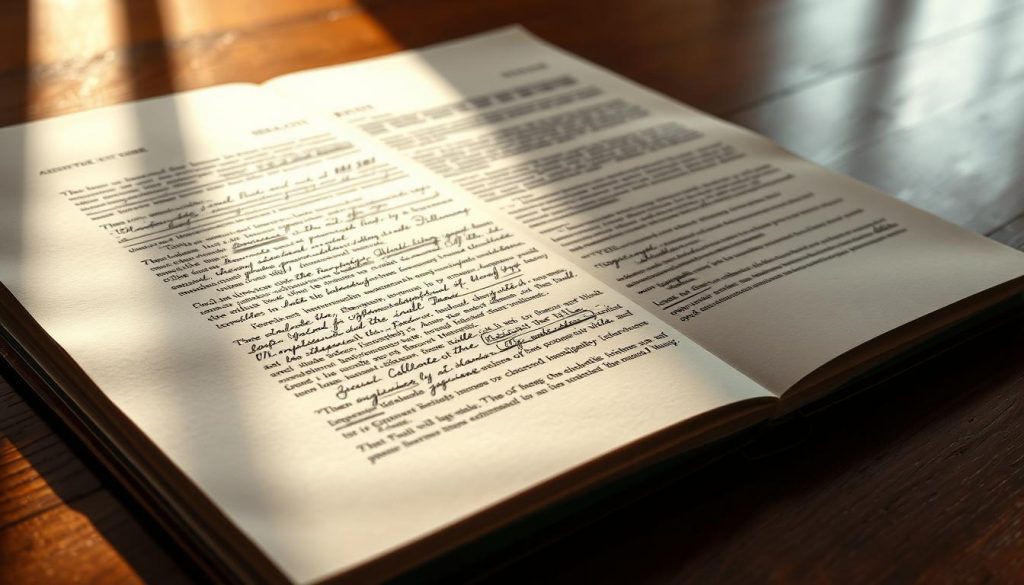Making changes to your will is a common practice in the UK, ensuring that your estate is distributed according to your current wishes. As life events occur, such as marriages, divorces, or the birth of children, it’s essential to update your will to reflect these changes.
At our firm, we understand the importance of protecting your loved ones through proper estate planning. We guide you through the process of modifying your will to ensure that your assets are distributed as you intend.
Updating your will is a straightforward process when you have the right guidance. We are here to help you navigate the legal requirements and make the necessary changes to your will.
Key Takeaways
- Updating your will is a common and necessary part of estate planning.
- Changes in life events may require modifications to your will.
- Our team guides you through the process, ensuring your wishes are respected.
- Proper estate planning protects your loved ones and your assets.
- We help you navigate the legal requirements for updating your will.
Understanding Will Amendments in the UK
Ensuring your will is up-to-date is vital, and understanding how to make amendments is key to protecting your loved ones. As we navigate the complexities of estate planning, it’s essential to grasp the concept of will amendments and their significance.

What is a Will Amendment?
A will amendment, often referred to as a codicil, is a legal document used to make changes to an existing will. It’s a simpler and less costly alternative to rewriting the entire will. Amendments can range from minor changes, such as updating a beneficiary’s name or address, to more significant alterations, like adding or removing beneficiaries.
Importance of Having a Will
Having a will is crucial for ensuring that your wishes are respected and your estate is distributed according to your desires. As Lord Justice Thorpe once said, “A will is a declaration of a person’s intentions as to what they want to happen to their property after they die.” Without a will, the distribution of your estate will be governed by the laws of intestacy, which may not align with your wishes.
“A will is a declaration of a person’s intentions as to what they want to happen to their property after they die.” –
When Should You Consider Amendments?
Life is full of changes – marriage, divorce, the birth of children, or significant shifts in financial status. These events often necessitate altering a will to reflect your new circumstances. Additionally, changes in tax laws or the needs of your beneficiaries might also prompt will revisions. Regularly reviewing your will ensures it remains a true reflection of your wishes.
- Marriage or civil partnership
- Divorce or separation
- Birth or adoption of children
- Significant changes in financial status
By keeping your will updated, you can ensure that your estate is distributed according to your current desires, providing peace of mind for you and your loved ones.
Types of Amendments to a Will
As life events unfold, it’s often necessary to make adjustments to your will to ensure it continues to represent your intentions. Amendments to a will can be made in several ways, each serving a distinct purpose and offering different benefits.
Codicils: What Are They?
A codicil is a legal document used to make changes to an existing will. It allows you to amend specific provisions without having to rewrite the entire will. For instance, you might use a codicil to change the name of a beneficiary or to alter the distribution of certain assets. To learn more about codicils and their role in amending a will, you can visit this resource.

When creating a codicil, it’s essential to follow the same formalities as when you made your original will, including signing it in the presence of two witnesses. This ensures that the changes are legally binding and recognized.
Complete Revocation of Previous Wills
In some cases, you may decide that your existing will no longer serves your needs, and you might choose to revoke it entirely and create a new one. This approach is often taken when significant changes are required, making it simpler to start afresh rather than amending the existing document. Revoking a will and creating a new one can provide clarity and ensure that your current wishes are accurately reflected.
For guidance on whether you need to update your estate plan in the UK, you can refer to this guide.
Informal Changes: Risks and Pitfalls
While it might be tempting to make informal changes to your will, such as handwritten notes or unwitnessed documents, these alterations can lead to disputes and challenges. Informal changes are not legally binding and can result in confusion or even render your will invalid. It’s crucial to follow the proper legal procedures when making amendments to avoid potential issues.
By understanding the different types of amendments available, you can ensure that your will remains a valid and effective reflection of your wishes. Whether you choose to create a codicil, revoke your existing will, or avoid making informal changes, it’s essential to approach will amendments with careful consideration and professional guidance when needed.
Legal Requirements for Amendments
Amending a will involves more than just changing your mind; it requires adherence to specific legal formalities. In the UK, the law dictates how changes to a will should be made to ensure they are valid and legally binding.
Formalities for Creating a Codicil
A codicil is a legal document used to make changes to an existing will. To create a valid codicil, it must be:
- Signed by you, the testator, in the presence of two independent witnesses.
- Signed by the two witnesses in your presence, and in the presence of each other.
This process ensures that the changes are made with the necessary formalities, making the codicil legally binding.
Witness Requirements in the UK
The witness requirements for amending a will in the UK are stringent. The witnesses must be independent, meaning they should not be beneficiaries under the will or spouses of beneficiaries. This requirement helps prevent potential conflicts of interest and ensures the integrity of the process.
“The witnesses to a will or codicil must be impartial and not benefit from the will in any way.”
The Role of Solicitors in Amendments
Solicitors play a crucial role in the process of amending a will. They can provide expert guidance on the legal requirements and ensure that the changes are made correctly. A solicitor can help you:
- Understand the implications of the changes you wish to make.
- Draft a codicil that meets the legal formalities.
- Ensure that the amended will or codicil is properly executed and witnessed.
By involving a solicitor, you can have peace of mind knowing that your amended will is valid and reflects your wishes.
Updating a will is a significant step, and doing it correctly is crucial to ensure that your wishes are respected. By following the legal requirements and seeking professional advice when needed, you can make changes to your will with confidence.
Common Reasons for Amending a Will
There are numerous reasons why you might need to alter your will over time. Life is dynamic, and changes in personal circumstances, financial situations, or relationships can all impact how you want your estate to be distributed after you’re gone.

Changes in Personal Circumstances
Significant life events often necessitate updates to your will. For instance, getting married or divorced can dramatically change your wishes regarding asset distribution. We recommend reviewing your will after any major life change to ensure it remains relevant.
- Marriage or civil partnership
- Divorce or separation
- Birth or adoption of children
- Death of a beneficiary or executor
For more information on how life changes affect your will, you can visit Trust & Will for guidance.
Adding or Removing Beneficiaries
Over time, you may want to add or remove beneficiaries from your will. This could be due to changes in your relationships or shifts in your financial situation. It’s essential to update your will to reflect these changes to ensure your wishes are carried out.
For example, you might want to add a new grandchild as a beneficiary or remove someone who is no longer in your life. We advise consulting with a legal professional to ensure these changes are made correctly.
Altering Asset Distribution
Changes in your financial situation or the value of your assets can also necessitate amendments to your will. You may need to adjust the distribution of your estate to reflect changes in your assets or to ensure that your beneficiaries receive what you intend for them.
For guidance on altering asset distribution, you can consult resources like MP Estate Planning, which offers expert advice on estate planning.
By keeping your will up to date, you can ensure that your estate is distributed according to your current wishes, providing peace of mind for you and your loved ones.
How to Amend Your Will Properly
Amending your will is a crucial step in ensuring that your estate is distributed according to your current wishes. As life is full of changes, whether it’s a new addition to the family, a change in financial status, or a shift in relationships, your will should reflect these changes to ensure that your loved ones are protected and your wishes are carried out.

Steps to Amend Your Will
To update your will, you have a few options. You can create a codicil, which is a legal document that amends specific parts of your existing will. Alternatively, you can draft a completely new will, which is often recommended if the changes are significant.
- Review your current will to identify the changes needed.
- Decide whether a codicil or a new will is appropriate.
- Draft the changes or the new will, ensuring that they are clear and unambiguous.
- Sign the codicil or new will in the presence of two witnesses, who should not be beneficiaries.
When to Consult a Legal Professional
While it’s possible to make simple changes to your will on your own, consulting a legal professional is advisable, especially if the changes are complex or if you’re unsure about any aspect of the process. A solicitor can provide guidance on the legal requirements and ensure that your amendments are valid.
Complex changes might include adding or removing beneficiaries, changing executors, or altering the distribution of your estate. A legal professional can help navigate these changes to ensure they are executed correctly.
Costs Involved in Amending a Will
The costs involved in updating your will can vary. If you choose to consult a solicitor, their fees will depend on the complexity of the changes and the solicitor’s rates. Simple changes might be relatively inexpensive, while more complex amendments or drafting a new will could incur higher costs.
It’s essential to discuss fees with your solicitor upfront to understand what you’re paying for. Some firms may offer fixed fees for certain services, which can provide clarity and help with budgeting.
Impact of Amendments on Existing Wills
When you make changes to your will, it’s essential to understand how these amendments impact your existing testamentary document. Altering a will can have significant consequences on the distribution of your assets and the well-being of your beneficiaries.
How Amendments Affect Previous Provisions
Making amendments to your will can alter the provisions you’ve previously made. For instance, if you’ve added new beneficiaries or changed the distribution of your assets, these changes can affect the overall balance of your estate plan. It’s crucial to review your will carefully to ensure that the amendments align with your overall intentions.
For example, if you’ve recently acquired new assets or experienced changes in your personal circumstances, you may need to adjust your will to reflect these changes. This could involve will revisions that update your beneficiaries or alter the distribution of your estate.
Communicating Changes to Beneficiaries
Once you’ve made amendments to your will, it’s vital to communicate these changes to your beneficiaries. This ensures that they are aware of your updated wishes and can help prevent potential disputes or misunderstandings in the future.
We recommend that you inform your beneficiaries of the changes you’ve made and provide them with a copy of the updated will if necessary. For more information on managing your estate plan, you can refer to our guide on wills and estate planning for seniors.
By keeping your beneficiaries informed, you can ensure a smooth transition of your estate and provide them with peace of mind. Effective communication is key to avoiding potential conflicts and ensuring that your wishes are respected.
Frequently Asked Questions about Will Amendments
As you consider changes to your will, it’s natural to have questions about the process. Amendments to a will, also known as will changes, can be a complex but necessary part of estate planning. We will address some of the most common queries regarding will amendments to help guide you through this process.
Are Oral Amendments Valid?
In the UK, oral amendments to a will are generally not considered valid. The law requires that changes to a will be made in writing and signed in the presence of two witnesses. This formal process ensures that amendments are carried out with the necessary legal formalities, reducing the risk of disputes or challenges to the will.
Can I Amend a Will After Death?
Once a person has passed away, their will cannot be amended. Any changes or adjustments to the distribution of their estate must be made through other legal mechanisms, such as a deed of variation, which requires the agreement of all beneficiaries. It’s essential to understand that attempting to alter a will after death can lead to legal complications and potential disputes among beneficiaries.
What Happens if an Amendment is Disputed?
If an amendment to a will is disputed, the matter may be taken to court. The court’s role is to interpret the will and any amendments, considering the evidence and the intentions of the deceased. Disputes can arise for various reasons, including allegations of undue influence, lack of capacity, or improper execution. It’s crucial to ensure that any amendments are made with careful consideration and in accordance with legal requirements to minimize the risk of disputes.
Understanding the process and implications of will amendments can help you make informed decisions about your estate planning. If you’re considering making changes to your will, we recommend consulting with a legal professional to ensure that your wishes are carried out effectively and in accordance with UK law.
Best Practices for Maintaining Your Will
Maintaining your will is an ongoing process that requires regular attention to ensure it remains relevant and effective. As your life circumstances change, your will should be updated to reflect these changes, ensuring that your wishes are carried out accurately.
Regular Reviews of Your Will
It’s essential to review your will periodically, ideally every few years or whenever significant life events occur, such as marriage, divorce, or the birth of a child. Regular reviews help ensure that your will still aligns with your current situation and wishes. During these reviews, consider whether any changes are needed to your beneficiaries, executors, or the distribution of your assets.
- Check if your executors are still willing and able to carry out their duties.
- Verify that your beneficiaries are still relevant and that their inheritances are appropriate.
- Update your will to reflect any changes in your assets or financial situation.
Recording Amendments Clearly
When making changes to your will, it’s crucial to record these amendments clearly and formally. Using a codicil is one way to make minor changes without rewriting the entire will. However, for significant changes, it’s often better to create a new will that revokes all previous versions. This helps avoid confusion and ensures that your intentions are clear.
Best Practice: Always sign and date any amendments, and have them witnessed according to the legal requirements in the UK.
Keeping Your Will Secure
Once your will is updated, it’s vital to store it in a secure location where it can be easily accessed by your executors. Consider storing your will with a solicitor or in a safe deposit box at your bank. Make sure your executors know where to find your will when the time comes.
By following these best practices for maintaining your will, you can ensure that your wishes are respected and your loved ones are protected. Regularly updating a will and making will revisions as needed is a responsible step in estate planning.
The Role of Digital Tools in Will Amendments
The digital age has transformed the way we approach estate planning, including amendments to our wills. As we increasingly rely on digital solutions for various aspects of our lives, it’s natural that we turn to online tools for managing our estate plans.
Digital tools offer a range of benefits when it comes to amending a will. They provide a convenient and accessible way to review, update, and manage your estate plan. With the rise of online will services, individuals can now create, amend, and store their wills securely online.
Online Will Services and Their Benefits
Online will services have revolutionized the process of creating and amending wills. These platforms offer a user-friendly interface that guides you through the process, ensuring that your will is legally compliant and tailored to your specific needs.
- Convenience: Amend your will from the comfort of your own home, at any time.
- Cost-effective: Online services often reduce the costs associated with traditional legal fees.
- Accessibility: Easily update your will to reflect changes in your personal circumstances.
According to a recent survey, over 70% of individuals who used online will services reported being satisfied with the experience, citing ease of use and cost savings as key benefits.
“The use of digital tools in estate planning is not just a trend; it’s the future. As more people become comfortable with online services, we can expect to see a significant shift in how wills are created and amended.”
Digital Codicils: Are They Valid?
A codicil is a document used to make amendments to an existing will. With the rise of digital tools, the question arises: are digital codicils valid?
In the UK, the validity of digital codicils is a complex issue. While there’s no clear legislation specifically addressing digital codicils, the Law Commission has suggested that electronic wills could be recognized in the future, provided they meet certain criteria.
| Criteria | Traditional Codicils | Digital Codicils |
|---|---|---|
| Signature Requirements | Wet signature required | Electronic signatures potentially valid |
| Witnessing | Two witnesses required | Potential for remote witnessing |
| Storage | Physical storage | Secure digital storage |
As the law evolves, it’s likely that digital codicils will become more widely accepted. For now, it’s essential to consult with a legal professional to ensure that any amendments to your will, whether traditional or digital, are executed correctly.
As we move forward, it’s clear that digital tools will play an increasingly important role in will amendments. By understanding the benefits and limitations of these tools, we can ensure that our estate plans remain up-to-date and effective.
The Future of Wills and Amendments in the UK
As we look to the future, it’s clear that estate planning, including will amendments, will continue to evolve. We are seeing a shift towards more personalized and flexible estate planning solutions, driven by changing family structures and asset distributions.
Emerging Trends
The rise of digital tools is transforming how we create and modify wills. Online will services are becoming increasingly popular, offering convenience and accessibility. This trend is likely to continue, with more emphasis on user-friendly platforms that guide individuals through the process of making amendments to a will.
Potential Legislative Changes
Legislative changes are on the horizon, potentially simplifying the process of will modifications. We anticipate reforms that could make it easier to update wills, reflecting changes in personal circumstances or asset distribution. Staying informed about these will modifications and legislative changes will be crucial for individuals looking to protect their loved ones.
By understanding these developments, we can better navigate the complexities of estate planning, ensuring that our wills and amendments are valid, effective, and aligned with our wishes.


